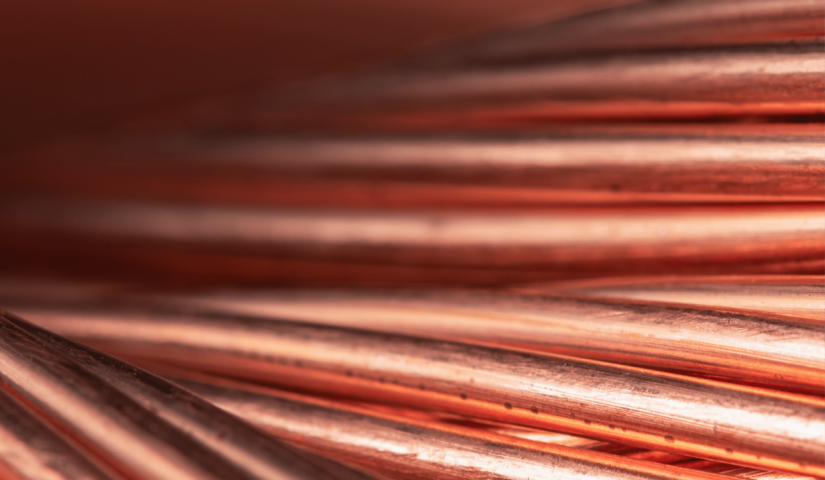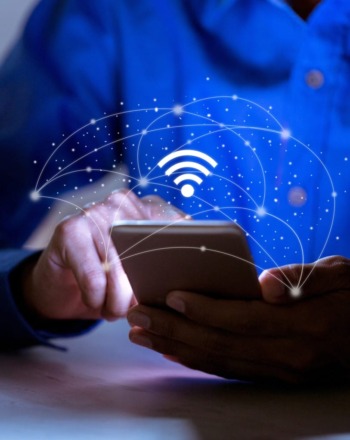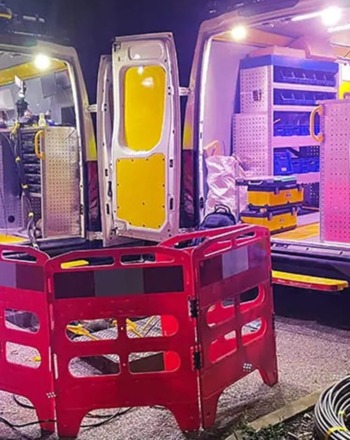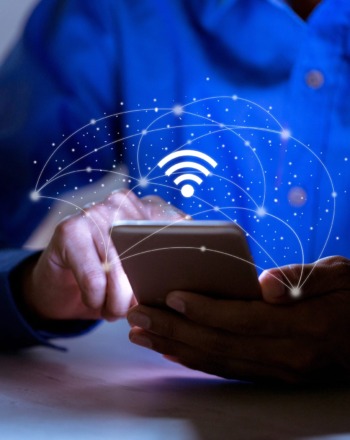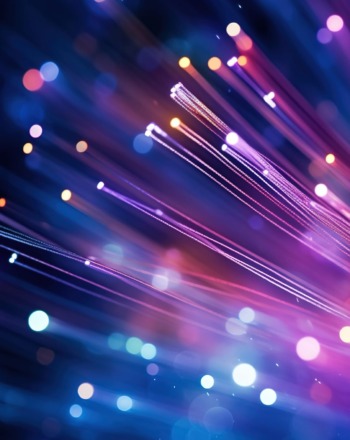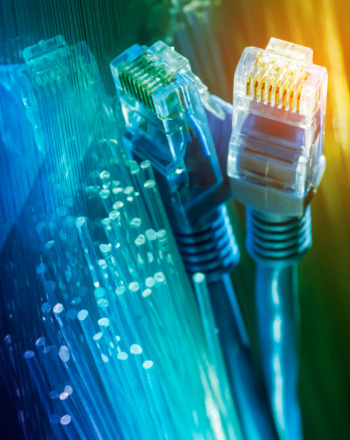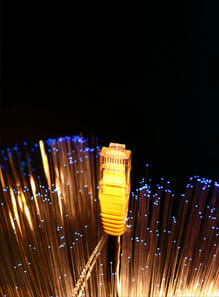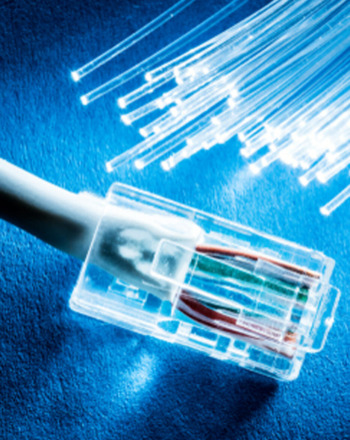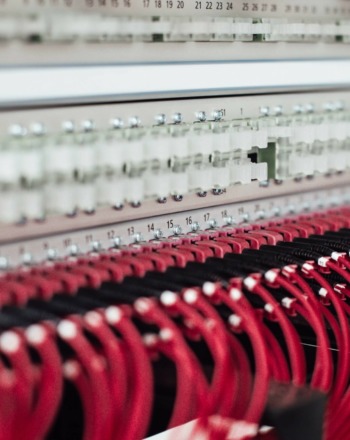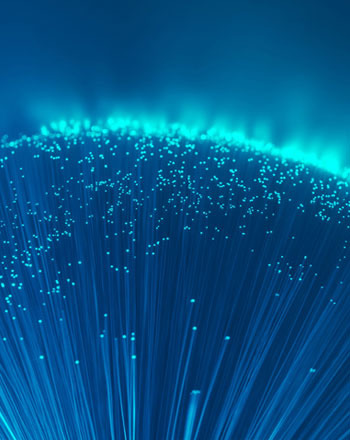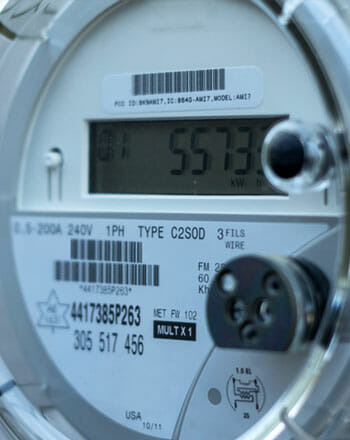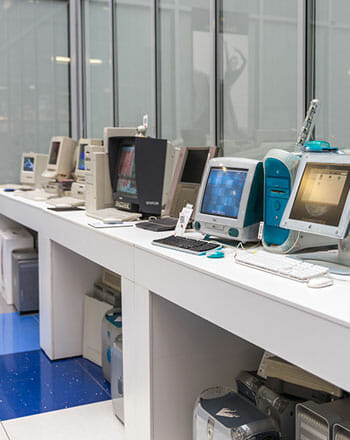Copper has played a fundamental role in shaping modern communication networks.
A conductive metal ideal for transporting electrical signals, copper's influence has been pervasive, albeit increasingly overshadowed by innovations in fibre broadband and fibre internet.
In this article, we’ll investigate the journey of copper throughout the years, focusing on its role in communication technologies.
What Is Copper Internet Connection?
Copper was used to create the first commercial phone networks in the 1880s, with initial installations in Germany, Belgium, the US and the UK.
The primary advantages of copper are that it’s highly conductive, malleable and cheap – which makes it ideal for carrying telephone signals and, more lately, internet signals.
Copper has been the backbone of landline phone systems and early internet through methods like dial-up and DSL but has been usurped by fibre optics, which has started to replace copper networks.
Origins of Copper in Communication
Copper has been used for telephony for almost 150 years.
Alexander Graham Bell issued the first patent for copper telephones in 1876 and made the first long-distance call in 1892, reaching Chicago from New York.
By the 1920s and 30s, many European countries had adopted copper telephone networks.
Copper in Old Communication Systems
Copper was first used in simple electrical circuits and telegraph systems in the early 19th century.
The first patents for copper telephony were created in 1881, and by 1884, experimental long-range networks were established between Boston and New York.
Not long after, the UK, Belgium and Germany created small-scale commercial copper phone networks that were scaled up to most of the UK before the mid-1920s.
Telegraph lines extensively used copper wire and were the first to prove the metal's utility in long-distance communication.
These initial steps paved the way for the future use of copper in more complex communication systems, including the internet.
Telephone and internet signals are fundamentally electrical, meaning the same wires can carry both.
Copper's Contribution to the Telephone Revolution
The invention of the telephone by Alexander Graham Bell in 1876 marked a significant milestone for telephone networks.
Because of its good electrical conductivity and cost, copper became the standard material for telephone lines. Other conductive metals, like gold, are considerably more expensive.
It wasn't long before major cities were connected with copper wiring, offering reliable and efficient means for voice communication.
This also created a boom for telecommunication companies.
Copper Connection Types
Copper in Telecommunication Cables
Copper has long been integral to the world of coaxial cables, which are responsible for transmitting television signals.
It's also found in T1 and E1 lines, which are leased private cabling services for businesses.
Copper in Ethernet and LAN Technology
Local area networks (LAN) have heavily relied on copper, primarily through Ethernet cables.
Twisted-pair cables categorised as Cat 5, Cat 6, and others, are staples for offices, educational institutions, healthcare facilities and residential settings.
These copper Ethernet cables offer an economical yet reliable solution for in-building networking needs.
Their durability and quality have stood the test of time, consistently delivering solid service in data transmission.
Copper in Broadband and DSL
Digital subscriber line (DSL) technology also employs copper telephone lines to provide broadband internet access.
While DSL may not offer the same high-speed capabilities as fibre broadband, it balances speed and cost.
DSL is used in areas where fibre optic infrastructure hasn't yet been established.
Future of Copper Connections
After over 100 years in service, the UK will be retiring its copper phone network entirely by 2027, with plans to transition all homes to fibre and full fibre by 2025.
This will vastly boost the nation’s internet infrastructure, and it’s wise for businesses to begin preparing now.
Sustainability and Copper Connections
Copper, though relatively cheap, is a finite resource, and its extraction is linked to environmental degradation.
Thus, the sustainable use of copper is a growing concern. Recycling has offered some relief but cannot completely mitigate the negative impacts of copper mining.
Why Is Copper Being Switched Off?
The drive for higher speeds and better reliability has pushed internet technologies toward superior fibre internet and broadband.
Openreach intends to roll out full-fibre broadband to 25 million homes by the end of 2026 in a colossal modernisation of the nation’s telephone and internet infrastructure.
Modern alternatives offer significant advantages over copper, including higher data transfer rates and lower latency.
Explore Glide's Futureproof Connectivity Solutions
As we look forward, it is evident that the long reign of copper is ending.
The transition is underway, and businesses are tapping into super-reliable, super-fast full-fibre broadband to equip them with cutting-edge internet.
If you're considering upgrading your connectivity solutions, Glide offers a range of futureproof internet connectivity options that leverage modern technology.

